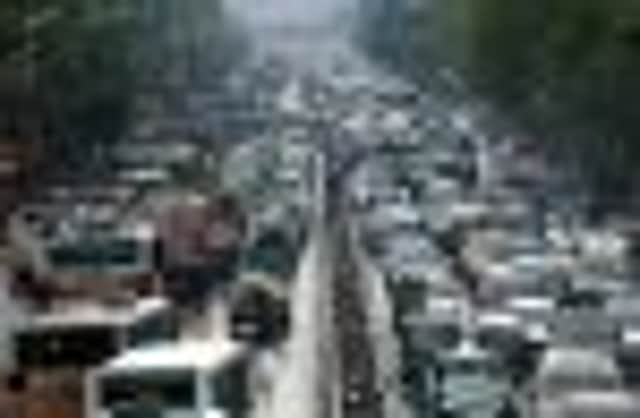Hugh Reilly: To create a paradise use minimalist effort


One might have thought that the only way was up for Bangladesh’s megalopolis, but in 2012, despite fierce competition from Harare, it succeeded in securing bottom of the barrel status. On hearing the depressing news of coming 140th of 140 cities, the Bangladesh government ordered its PR machine to put a positive slant on the research. Unfortunately, some spin-doctors were stuck in traffic jams, a few had been trampled underfoot by a tsunami of people walking to work, and others had suffered pollution-induced asthmatic attacks. To be fair, the laudable action taken by the authorities to reduce smog is beginning to bear fruit; now, on a clear day, you can almost see your hand.
A week past Sunday, I was ecstatic to be sitting in the front seat of a people-carrier, breaking out of Dhaka for the 230 miles trip to Uttar Bangla College. My joy was somewhat short-lived when the motoring skills of our driver, Monowar, made Lewis Hamilton look like a Sunday driver popping out for a newspaper. To the untrained bulging eye, he appeared to be playing a game of chicken with oncoming logging lorries and buses. After six hours as an unwilling participant in the wacky race to northern Bangladesh, I tetchily demanded that the head of Charity Education International, Dr Huq, and I swopped seats. Big mistake. My initial Muttley-like laugh quickly became a shocked Scooby-Do ‘Ooooo!?’ on discovering there were no rear seat belts. Worse, while I sat terrified as if aboard an out-of-control rollercoaster without a harness, Dr Huq fell soundly asleep.
Advertisement
Hide AdAdvertisement
Hide AdAfter ten hours, we somehow reached Kakina alive. On a guided tour of the campus, it became abundantly clear that the design features of the classrooms had taken minimalism to a new level. Put it this way: a Spartan teacher offered such a teaching environment would have been hammering on the door of his EIS rep demanding a change of accommodation.
Kakina is just a short car journey or, more likely, a long, bone-shaking rickshaw ride from the border with India. Daily power outages are a fabric of existence in this remote corner of former East Pakistan. On Thursday, just as my electric trimmer cut what little hair grows on my largely cue-ball-like bonce, someone in the village must have put on a kettle. The subsequent power cut threatened to have me turning up for college resembling Magua in The Last of The Mohicans. Luckily for all concerned, the electricity was temporarily restored.
Bangladeshi hospitality is overwhelming. One has to physically put both hands over one’s plate to stop a host heaping more food on it. At the home of Rubel, the vice-principal, his young daughters performed an impromptu traditional song and dance show: the daughter of Osmani, a colleague, did the same when I accepted an invitation to dine. The ex-mayor took me to a café for a cup char and, given his standing, we were ushered into the VIP area, a snug lounge with corrugated tin walls. Tea is 3 taka (less than 3p). I took the risk of being labelled a big shot by offering to pay the bill.
Perhaps my only concern is that, each evening, I’m padlocked inside the house by an elderly caretaker. Should there be a fire, exiting via a window is impossible due to iron grills. Dreeping down a drainpipe from the roof terrace is not an option as water egresses through horizontal spouts. The only escape route from this three-storey building is jumping from a balcony, preferably the first floor one if I’m being totally honest.
If the worst should happen, that is, fate hands me the leading role in Bangladesh’s re-make of The Wicker Man, at least I’ll die a happy man. With its wonderful weather and kind people, Kakina is a little bit of heaven on Earth.